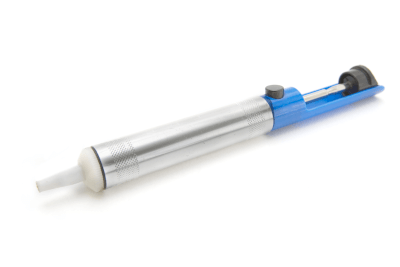What Is Desoldering Equipment?

Desoldering equipment is a tool designed for removing misplaced solder from electronic components and circuit boards. Solder, a vital material in electronic assembly, occasionally ends up in the wrong places due to operational errors. Desoldering tools provide a solution to this problem by enabling the removal and reuse of solder, thereby reducing waste and costs.
While these tools enhance work efficiency and productivity, they often use heat for solder removal, which can potentially damage heat-sensitive components or circuit boards if not used carefully.
Uses of Desoldering Equipment
Desoldering tools are versatile and find application in various soldering tasks:
1. Correcting Misplaced Solder
They are primarily used to rectify soldering mistakes, ensuring accuracy in the assembly process.
2. Solder Removal
Desoldering tools are instrumental in removing old solder from circuit boards and components and preparing them for reuse or recycling.
3. Solder Transfer
These tools can transfer solder precisely to specific locations, assisting in complex soldering tasks.
4. Cleaning
They also serve to clean the surfaces of circuit boards and electronic components from accumulated dirt and debris.
Principle of Desoldering Equipment
Desoldering equipment operates by combining heat and suction. The tool’s tip is heated to melt the solder, turning it into a liquid state. A suction mechanism, typically a pump or fan, then draws the molten solder into the tool. As the solder cools, it solidifies and collects in a compartment for later disposal or reuse.
How to Select Desoldering Equipment
Choosing the right desoldering tool involves considering factors such as power source, cylinder capacity, heat source, and anti-static measures:
1. Power Source
Options include manual tools, which rely on physical force for suction, and electric tools that offer ease of use with power-generated suction.
2. Cylinder Capacity
The cylinder capacity determines the volume of solder the tool can handle, which should align with the user’s needs.
3. Heat Source
Tools come with built-in heating elements or require separate heat sources. The choice depends on the specific requirements of the task at hand.
4. Anti-static Measures
For electronic applications, selecting tools with anti-static features is crucial to protect sensitive components from static damage.